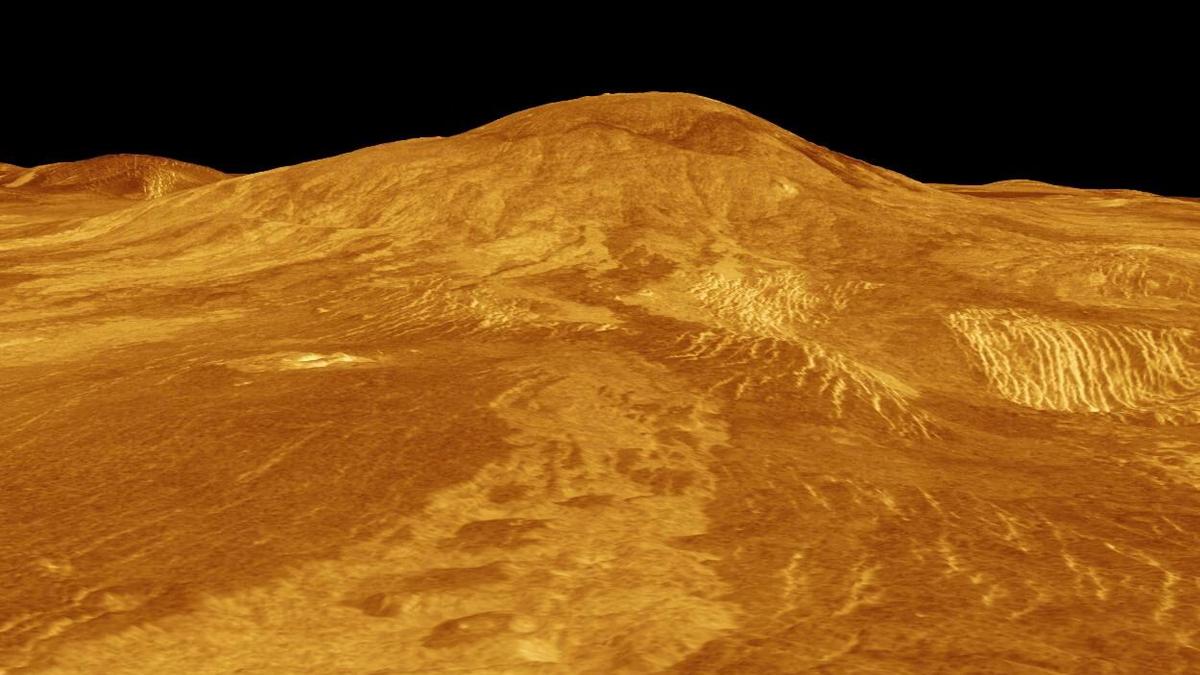
Did Venus ever have oceans? Scientists have an answer
The Hindu
New research suggests Venus never had oceans, making it uninhabitable, with implications for understanding planetary evolution.
Earth is an ocean world, with water covering about 71% of its surface. Venus, our closest planetary neighbor, is sometimes called Earth’s twin based on their similar size and rocky composition. While its surface is baked and barren today, might Venus once also have been covered by oceans?
The answer is no, according to new research that inferred the water content of the planet’s interior - a key indicator for whether or not Venus once had oceans - based on the chemical composition of its atmosphere. The researchers concluded that the planet currently has a substantially dry interior that is consistent with the idea that Venus was left desiccated after the epoch early in its history when its surface was comprised of molten rock - magma - and thereafter has had a parched surface.
Water is considered an indispensable ingredient for life, so the study’s conclusions suggest Venus was never habitable. The findings offer no support for a previous hypothesis that Venus may have a reservoir of water beneath its surface, a vestige of a lost ocean.
Volcanism, by injecting gases into a planet’s atmosphere, provides clues about the interior of rocky planets. As magma ascends from an intermediate planetary layer called the mantle to the surface, it unleashes gases from deeper parts of the interior.
Volcanic gases on Earth are more than 60% water vapor, evidence of a water-rich interior. The researchers calculated that gases in Venusian eruptions are no more than 6% water vapor, indicative of a desiccated interior.
“We suggest that a habitable past would be associated with Venus’ present interior being water-rich, and a dry past with Venus’ present interior being dry,” said Tereza Constantinou, a doctoral student at the University of Cambridge’s Institute of Astronomy and lead author of the study published on Monday in the journal Nature Astronomy.
“The atmospheric chemistry suggests that volcanic eruptions on Venus release very little water, implying that the planet’s interior - the source of volcanism - is equally dry. This is consistent with Venus having had a long-lasting dry surface and never having been habitable,” Constantinou added.

The Leela Palace Chennai presents the seven edition of Shefs at The Leela in collaboration with ‘Dean With Us’ — the mother-daughter duo of Rupali and Akansha Dean. The event honours the transformative role of Indian women chefs who are shaping the future of gastronomy. After past editions hosted across Bengaluru, Gurugram, Chennai, and Jaipur, the seventh edition in Chennai will bring together four women chefs — Sambhavi Joshi, Taiyaba Ali, Sehaj Ghuman and Bunuma Patagiri, who will bring their years of expertise into curating a menu that speaks both of their work and India’s diverse culinary heritage.





















 Run 3 Space | Play Space Running Game
Run 3 Space | Play Space Running Game Traffic Jam 3D | Online Racing Game
Traffic Jam 3D | Online Racing Game Duck Hunt | Play Old Classic Game
Duck Hunt | Play Old Classic Game










